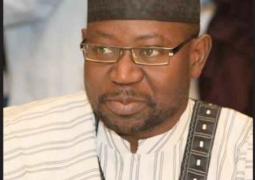Officials said the data collection instruments will be used in producing a report that will be representative of the formal labour market and also serve as a building block for sector skills plan.
Speaking at the meeting held at NAQAA conference hall in Kanifing, Amiecoleh Mbye, acting chief executive officer of NAQAA, urged the participants to actively and critically look at the Job Vacancy Data Collection instruments developed by the authority and make recommendations for improvement.
“As key partners, you are called upon to brainstorm and come up with good strategies for the collection of data that will be representative of the formal demand for labour and one that will serve the national purpose,” said Mrs Mbye who is the director of quality assurance, higher education.
Naffie Barry, permanent secretary at the Ministry of Trade, Industry and Employment, lauded NAQAA for the initiative while calling for a collaborative approach for factual data collection.
She noted that factual data will be of immense benefit to planners, policymakers and the private sector.
Sambujang Marreh, coordinator of the programme, explained that the main purpose of the report will be to aid in the development of skills standards that are responsive to labour market needs.
The report will also provide valuable information for those engaged in education and training provision, career guidance and policymaking.
Representatives of local and international accounting firms, job centres and Department of Labour commended NAQAA for the establishment of a system for factual data collection for the labour market.
NAQAA was established by an act of parliament in April 2016 and it is mandated to put in place a system to regulate national tertiary and higher education institutions.
It is also tasked to make all professional, tertiary and higher education programmes responsive to labour market needs.
Read Other Articles In Article (Archive)


